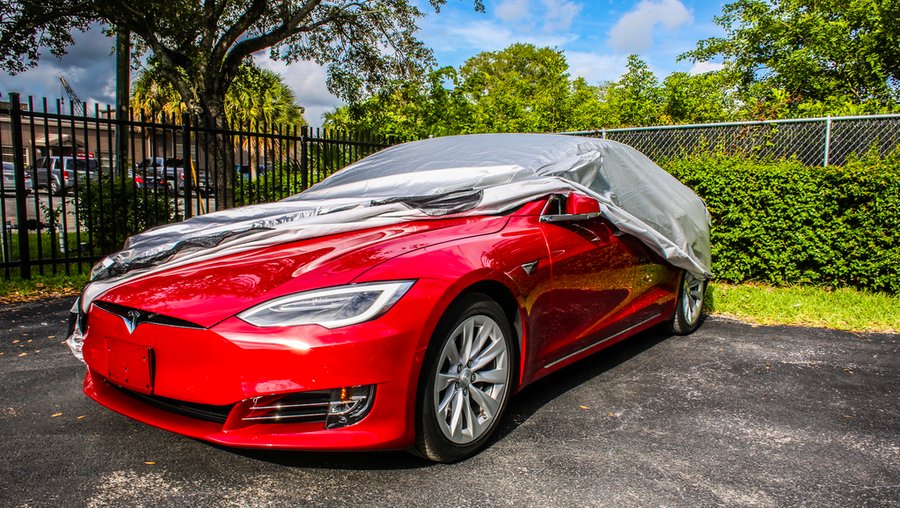Israel's vehicle sector operates like an "isolated island." In other words small and isolated geographically with no influence from the surrounding markets in which the major car manufacturers have no interest in establishing a direct presence. This model offers the local car importers and dealers a great degree of autonomy, and absence of interference by the manufacturers, which few markets in the world enjoy.
But Tesla, which as "Globes" revealed last week, plans disrupting this aspect of the market by directly selling its electric cars in Israel from the second half of 2021, rather than through importers and dealers. In part this is because the latest technology allows customers and their cars to be directly connected to the manufacturer from wherever they may be in the world.
However, in contrast to widespread opinion, Tesla's entry into Israel won't disrupt the pricing of the market, at least not in the short term, because it markets only three series of electric cars, the cheapest of which sells for at least €40,000 in Europe (before subsidies). The premium electric car segment is only a small part of the Israel car sector with a market share of less than 0.5% of sales.
But, and this is a big but, Tesla certainly might disrupt Israel's manufacturer-dealer relationship market and challenge the regulator, through its introduction in the country and leadership of commercializing the latest software and over-the-air technology of remote vehicles (OTA), which creates a direct connection between the vehicle manufacturer and customer, bypassing the dealer.
Tesla did not invent OTA but is the first manufacturer in the car industry that has realized the marketing potential of the technology. In contrast to the rest of the car industry, which sends out a collection of metal nuts and bolts from the factory to the customer for years of service, Tesla sees its cars as computer systems on wheels with mobile units that are controlled by dozens of labs connected up to rapid data networks.
As with all the latest computer networks, so Tesla's computer on wheels undergoes constant updates through the cloud. If conventional cars must be taken to the garage for any computer updates the manufacturer may want to introduce or diagnosis of problems, Tesla's wireless communications means updates can be downloaded directly by the car, sometimes without the car owner even being aware of the changes in the same way that smartphone manufacturers often update the software on devices.
All Tesla's cars are linked directly to the manufacturer's server via the cloud from the moment they go on the road until they end up on the junk heap. Thus the car owner enjoys constant software updates that add the latest smart features and improve the car's performance and quality of life for drivers and passengers. The manufacturer has complete control of the aftermarket for many years after the car leaves the production line and it also receives valuable feedback and data about the performance of the car.
Every Tesla car contains many "sleeper" options that are electronically locked that can be purchased by the car owner. New options are being added all the time by the remote updating of the software, sometimes accompanied by the need for new hardware. Most of the options enhance convenience such as more advanced navigation systems, seat heating and the like. But some of the options are more substantive such as increasing the range of the battery or improving acceleration capabilities.
In 2016, for example, Tesla S buyers could purchase options worth nearly an additional $20,000. Another prominent recent example is Tesla's full self-driving (FSD) program can be downloaded onto cars with auto-pilot for thousands of dollars.
Tesla's concept has caught the car industry unprepared. But manufacturers including Ford have recently announced plans to adopt this approach and several Chinese manufacturers of electric cars are following the trail blazed by Tesla and introducing OTA technology.
Tech companies are also jumping on the bandwagon and Mobileye recently launched Supervision, a sensor system for assisting drivers as a rival to Tesla's auto pilot. The next stage will be to offer technology allowing cars to download software Tesla-style.
Tesla also has major implications for car insurance. The data downloaded from Tesla's cars is being used by insurance company to assess a fair premium depending on an analysis of the number of kilometers driven and driving style. Many insurance companies have been happy to adopt this model through an app that the driver installs. Such insurance in Israel would require the regulator's approval.
The bottom line is that the entry of Tesla to Israel's car market and the different model, which challenges the entire industry is expected to bring the country's car industry into the 2.0 era. It will cancel the geographical borders of an isolated island and lower the obstacles for the entry of car manufacturers, and challenge, including behind the scenes, the classic business model, traditional car insurance and regulation.
The changes won't happen overnight but seeing the way Tesla's share price continues to rise, the process is irreversible.

